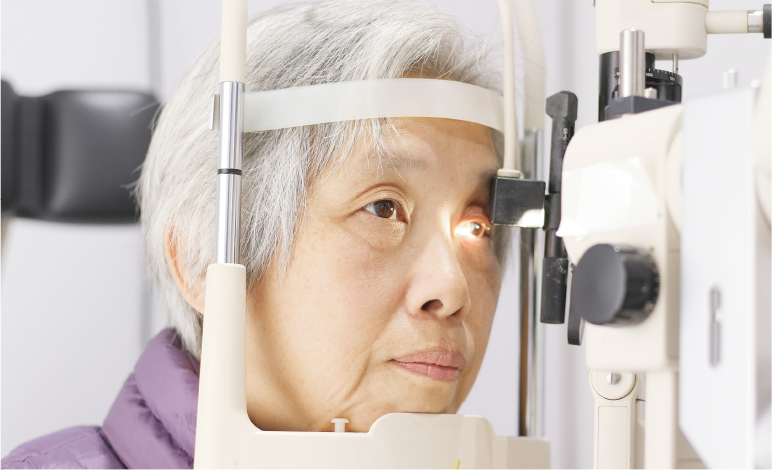RISK FACTORS1,4-5
Do you fit any of the descriptions below?
Who should be screened?Age over 40
Asian, African or hispanic3
Family, history of glaucoma5
Nearsightedness or farsightdness5
Past eye injuries5
Long-term steroid use4
History of blood circulation conditions, like migraines, diabetes, hypertension, severe anemia or shock5
All individuals with a positive family history of glaucoma should undergo comprehensive eye examination, and maintain follow-up at regular intervals. Siblings of glaucoma patients have up to 10 times the risk to develop glaucoma as compared to the normal population.

Emergency
Glaucoma can develop rapidly
Please visit an emergency room immediately if you experience and of the following symptoms:Sudden loss of vision in one eye
Sudden occurrence of hazy or blurred vision
Flashes of light-dark sports
Halos or rainbows appearing around light
Severe headache or eye pain
Nausea or vomiting
Do I Have Glaucoma?
Common tests that your doctor will perform before making a glaucoma diagnosis1:-
Ophthalmoscope / Slit-lamp test
Checks the pupil to examine the shape and colour of the optic nerve
Tonometry test
Checks intraocular pressure (IOP) or the inner pressure of the eye
Visual field test
Checks your field of vision to determine whether it has been affected by glaucoma
Gonioscopy
Checks whether the angle where the iris meets the cornea is open, narrow or closed
Optical Coherence Tomography (OCT)
A non-invasive imaging test like an ultrasound to take cross-section pictures of the retina
Go for regular eye check-up
In some cases, you may still be at risk of glaucoma even if the eye pressure is normal2. Since the early stages of glaucoma has no uncomfortable or painful symptoms1, it is therefore important for you to perform regular check-ups with your ophthalmologist and treat the disease early.
